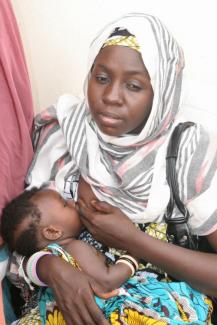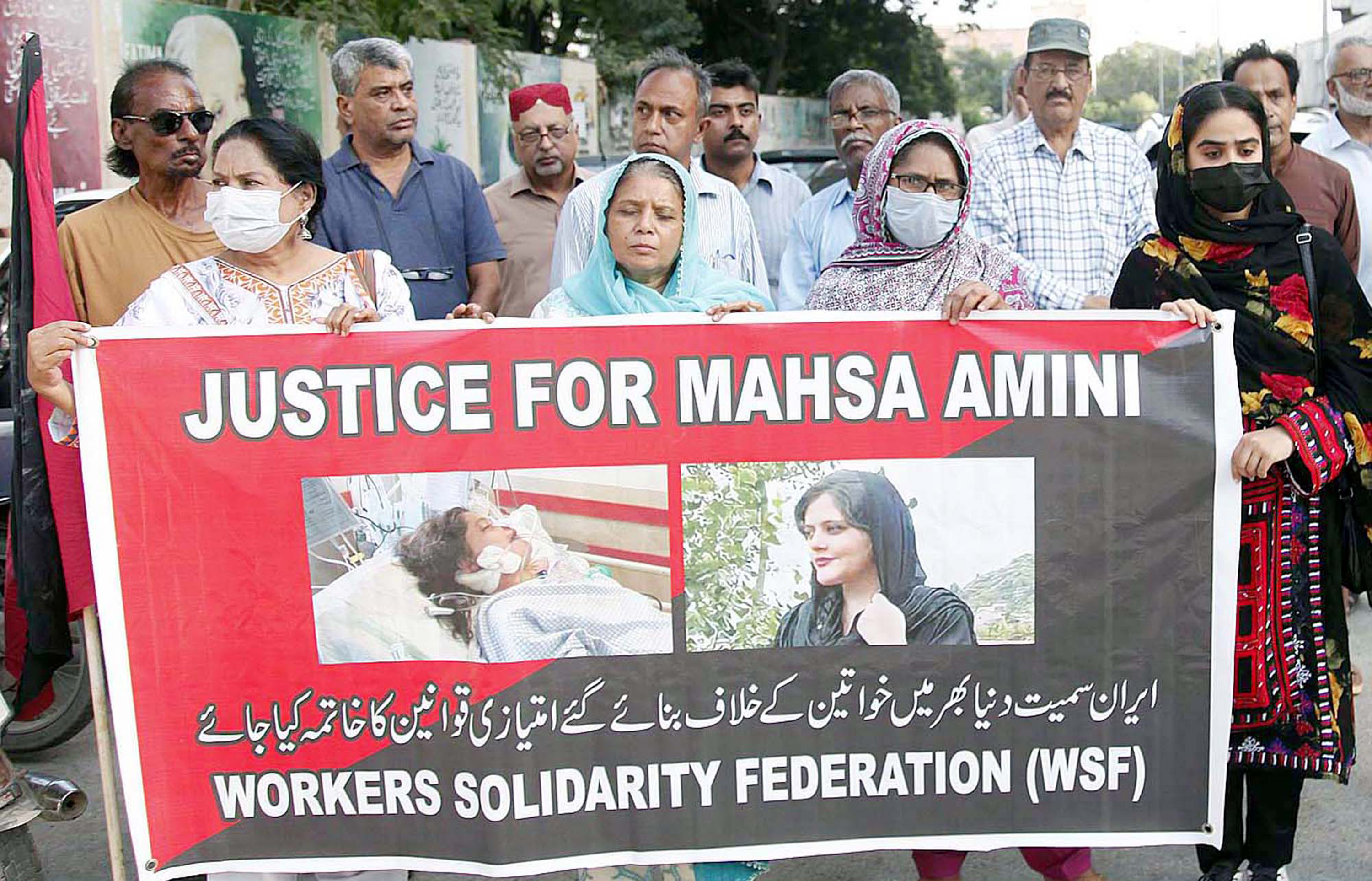Sexual violence
No longer welcome at home

Terror by the Boko Haram Islamists has caused a humanitarian crisis in northern Nigeria. The Islamist militia is particularly active against the education of girls. Since 2012, Boko Haram has abducted over 2,000 women and schoolgirls from villages in Nigeria’s North.
Kidnapped women and girls are forced to work or are married against their will. Most are enslaved, sexually abused and raped by militants, often by different men, for months or even years. Only few of the female captives manage to escape.
In an ongoing offensive, the Nigerian Armed Forces are gaining ground, and an increasing number of women and girls are being released. But their plight is not over. Families and neighbours tend to view the freed women with mistrust and suspicion. The victims do not get adequate support for coping with their traumatic experience. Making matters worse, some of the former captives are pregnant or have babies.
According to UN data, more than 2.5 million Nigerians have fled their homes because of the Islamist terrorists. Most are internally displaced persons (IDPs). About 10 % live in camps, the rest in host communities. International Alert and UNICEF (United Nations International Children’s Emergency Fund) did research in Borno State in north-eastern Nigeria, where about 95 % of the IDPs reside. They assessed how communities and authorities perceive the former captives and their children. “Many face marginalisation, discrimination and rejection by family and community members due to social and cultural norms related to sexual violence,” the two organisations’ recent report states.
Children born as a result of rape are viewed with particular scorn. They are considered tainted by the “bad blood” transmitted from their militant fathers. Fear of witchcraft matters too. According to the report, some people believe the children will become the next generation of fighters, “as they carry the violent characteristics of their biological fathers”.
Another issue is that some girls and women may have been “radicalised in captivity”. The authors point out that the exclusion of the victimised women and girls along with their children and yet unborn babies “needs to be understood in the context of the ongoing insurgency.”
Individual families, however, often react with more understanding, according to the report. Often, husbands will accept their wives back, if they had children with them before the abduction, and in such cases, even babies born from rape are accepted. Cases of young girls are more complicated since pregnancy reduces their chances to marry, and they become a financial burden on their parents. The majority of the women and girls interviewed for the report claimed to want to keep their children, but community leaders were prone to fear division within the community.
UNICEF and International Alert point out that the freed women and girls constitute a highly vulnerable group. They deserve better support from the Nigerian government and non-governmental organisations. The report mentions a “wide protection and service gap for women and children”.
Some government programmes were actually phased out in 2015. For instance, a rehabilitation facility had provided specific medical care and counselling for post-traumatic stress disorder. Moreover, there were programmes for “deradicalisation”, education and livelihoods.
So far, only a minority of the abducted women and girls have been freed, and the problems will grow as more return to their communities. In order to stem the risks of rejection, stigmatisation and violence towards them, UNICEF and International Alert tell international agencies and the Nigerian government to “make urgent preparations for survivors returning to their communities”.
Sheila Mysorekar
Link
UNICEF report: ‘Bad blood’: Perceptions of children born of conflict-related sexual violence and women and girls associated with Boko Haram in northeast Nigeria.
http://www.international-alert.org/sites/default/files/Nigeria_BadBlood_EN_2016.pdf













